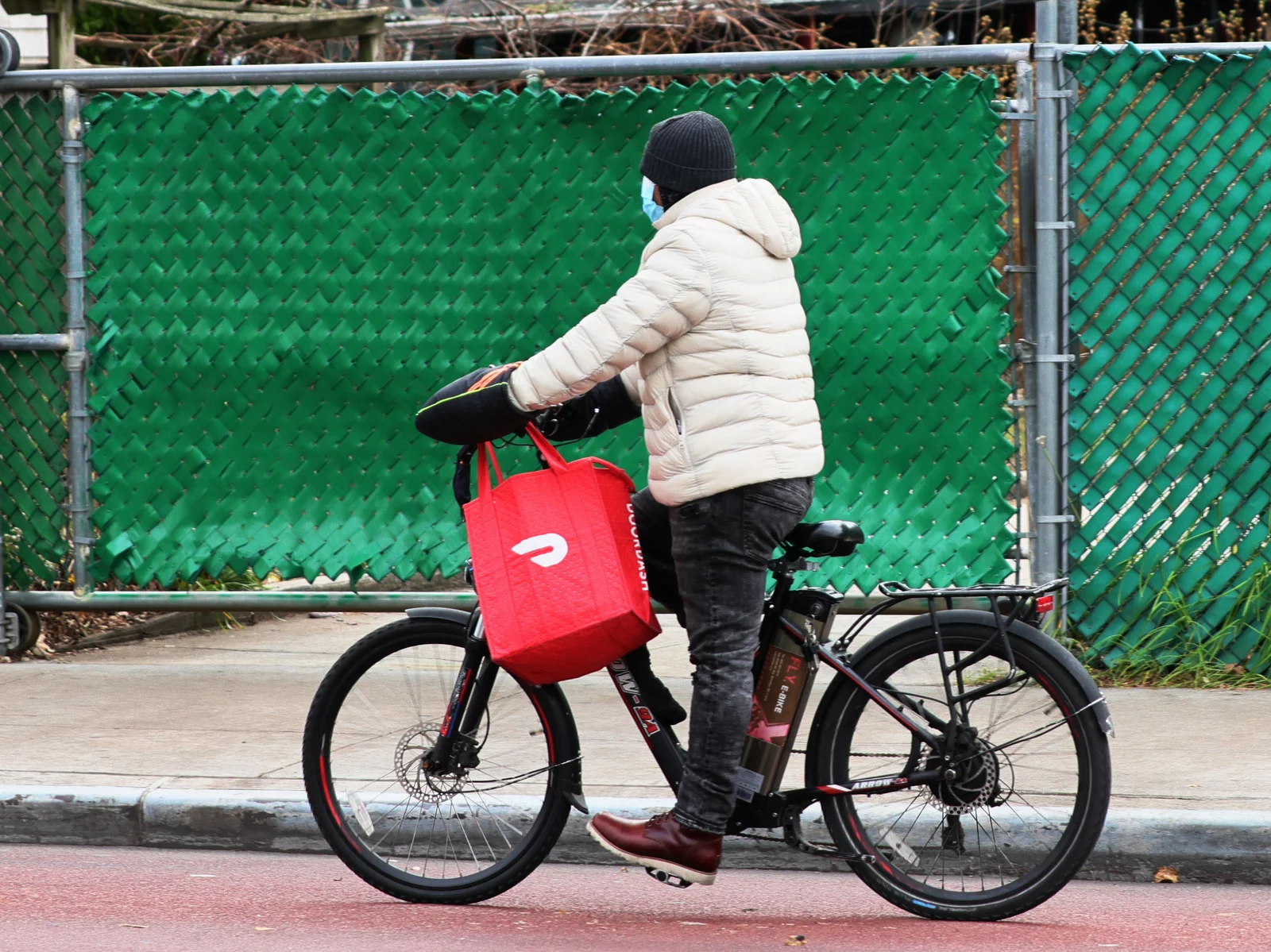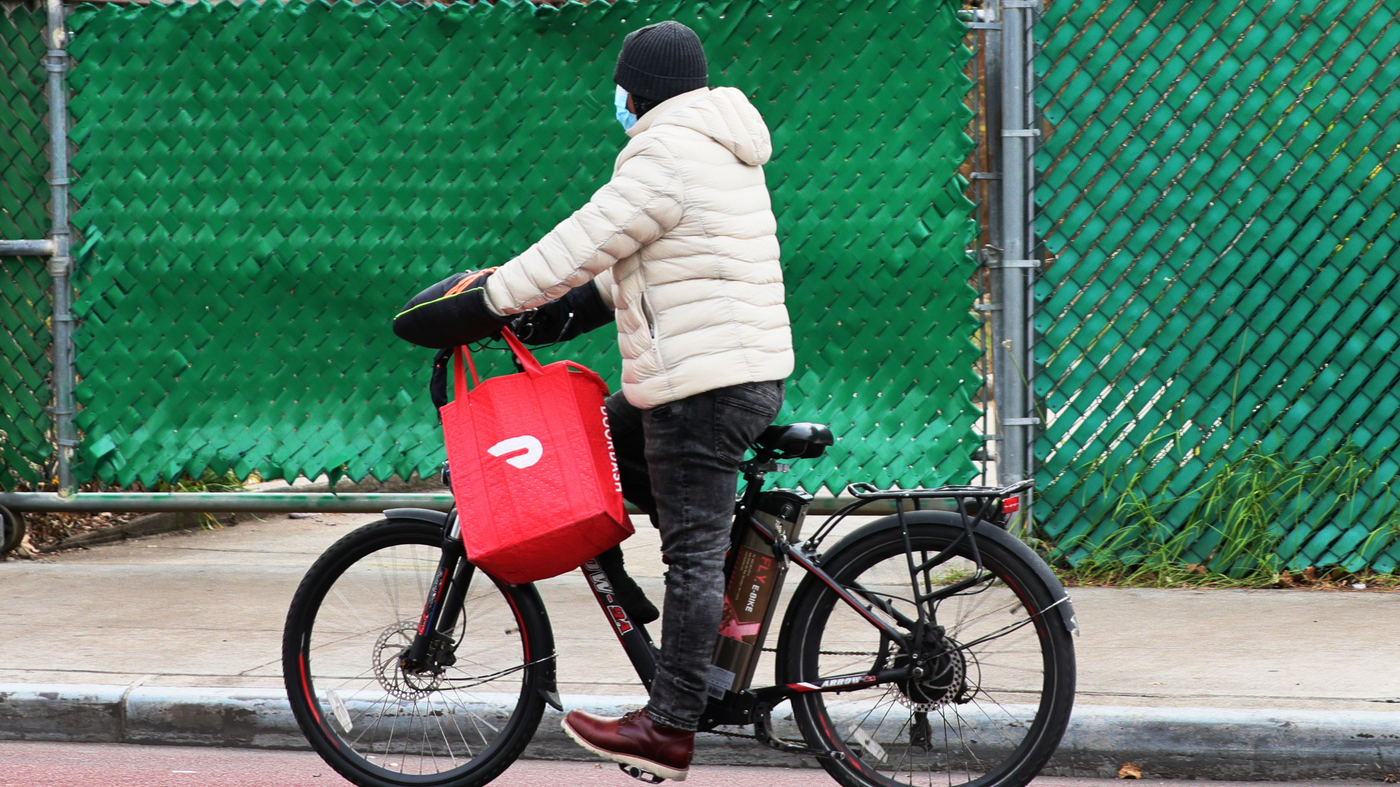
Across the country, many DoorDash drivers have stopped dashing to your door.
They've logged off the app for the day as part of a strike organized on social media against the food delivery service, demanding tip transparency and higher pay.
Here's why.
It all started, presumably, on Reddit
While the strike is nationwide and not affiliated with any particular organization, it appears to have originated on Reddit, where a post from July 15 circulated, titled, "DOORDASH BOYCOTT ON JULY 31ST ALL DAY !!"
The post urged Dashers — the company name for drivers — to stop using the app for the day and to instead use UberEats. At the bottom the post lists demands, including a minimum "base pay," the amount a driver earns on each order before a tip, of $4.50.
According to information provided to NPR by DoorDash, Dasher base pay is calculated based on the estimated time, distance and desirability of an order, Right now, Dashers can expect to earn a base pay between $2 to $10+, according to DoorDash's website. Drivers say the lower end of that range had previously been $3.
"As if a $3 base pay from DoorDash was not insulting enough, they've lowered it to $2, $2.25, $2.50, $2.75," one DoorDasher, Denise Small, said in a TikTok video that has amassed over 530,000 views. "I've declined so many orders because they've been $2."
Drivers want to know tip amount before accepting an order
Workers have also demanded to know how much in tips they'd make before accepting or declining an order. Dashers keep 100% of their tips, but the DoorDash app only shows a guaranteed minimum amount and does not allow drivers to see how much a customer has tipped until after the driver accepts the order.
For orders that contain larger tips, the app shows an estimated amount rather than the full tip amount, which according to information sent to NPR from DoorDash, the company does due to the number of drivers who would repeatedly decline deliveries if they didn't have high tip amounts.
But some drivers have told Motherboard that because tip amount is factored so heavily into a driver's total earning, the tip can be the difference between making or losing money on a delivery.
Some Dashers solved this problem by downloading Para, a third-party app that used DoorDash's code to let drivers see the tip amount before accepting an order.
The app became extremely popular, but its success was short-lived. Soon enough, in mid-July, it no longer worked with DoorDash's app.
"I would say a lot of workers woke up when Para stopped working," one DoorDash driver told Motherboard. "Para showed that DoorDash is not as transparent as it could be. I think it's ridiculous that DoorDash hides tips for orders. It's very common to get no tips."
According to a statement from DoorDash, Para violated the company's terms of service.
"Para collects its information by scraping content without authorization from the DoorDash platform. This is deeply concerning as we are committed to protecting the privacy and data security of every side of our marketplace and stakeholders," the statement read.
The effects of the strike are unknown so far
It's unclear how many Dashers have participated in the strike, though hundreds of posts about it can be found across TikTok, Reddit, Twitter and Facebook. While some people have voiced their approval and encouraged others to participate, several other commenters expressed their doubts that the strike would be effective.
In information sent to NPR, DoorDash called the strikers "a vocal minority," but said the company was monitoring boycott conditions.
"DoorDash is proud to provide flexible, low-barrier earning opportunities for Dashers while helping restaurants grow their businesses. On average nationally, Dashers work fewer than 4 hours a week and earn over $25 an hour (while) they're on delivery, including 100% of their tips," DoorDash wrote in a statement.
One driver who is participating in the strike told Insider: "Dashers want fair compensation for our time and efforts. We are what makes the company run but we're treated as disposable."

Why DoorDash Drivers Are On Strike
Having organized on TikTok, Reddit and Facebook, many DoorDash drivers around the country logged off the app on Saturday. Drivers are demanding tip transparency and higher pay.

